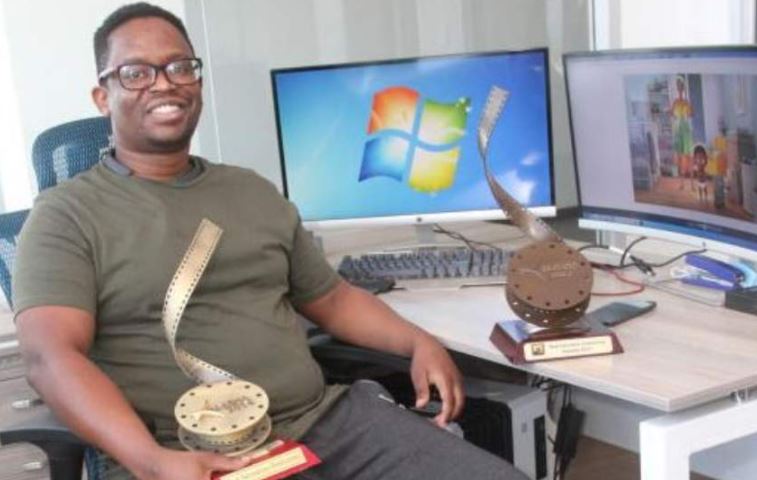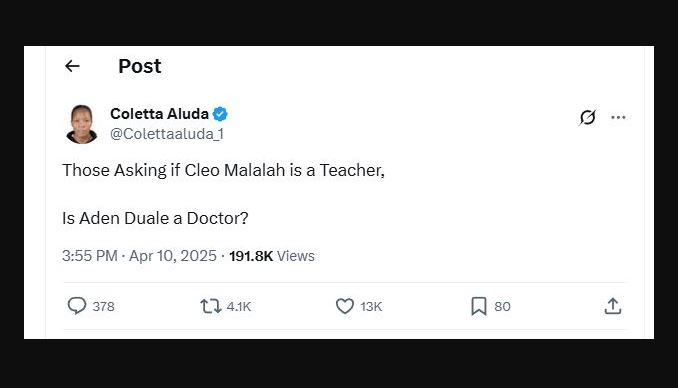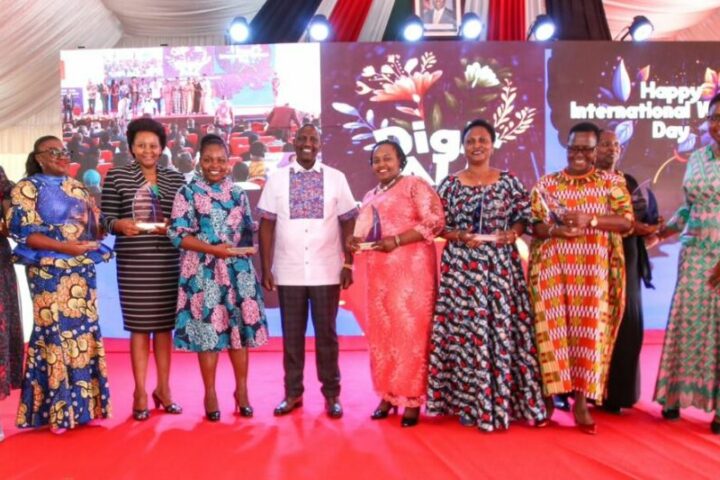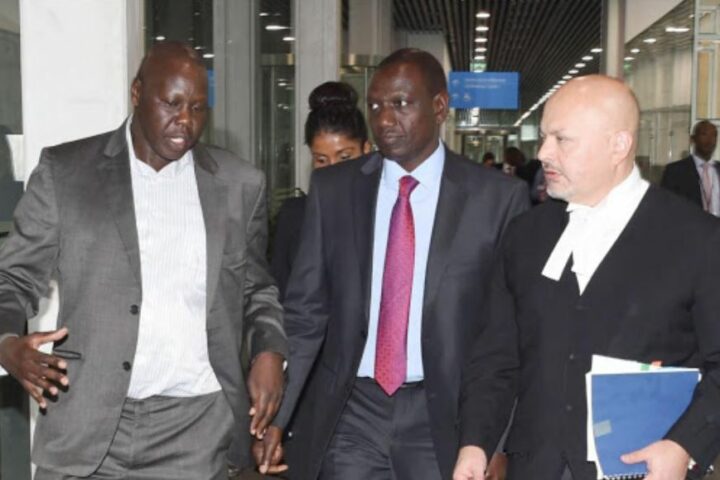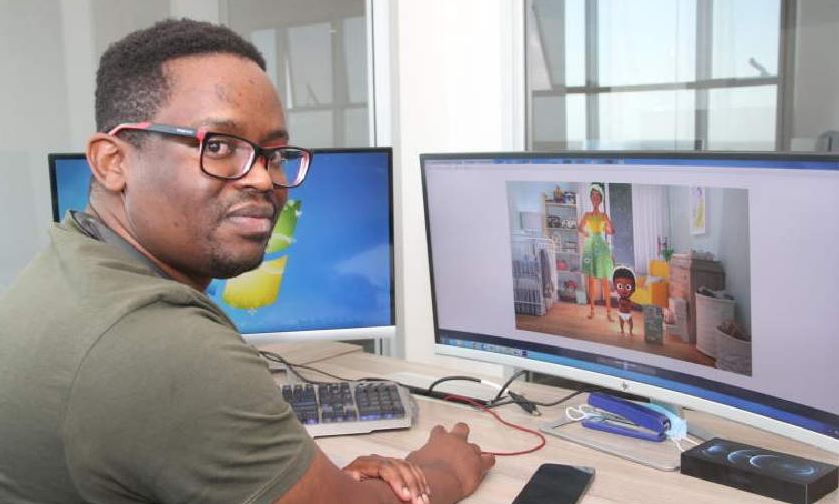 Michael Muthiga, 33, is the creative force behind some of the best animation commercials on Kenyan television.
Michael Muthiga, 33, is the creative force behind some of the best animation commercials on Kenyan television.
He started his animation company, Fatboy, in 2010 and has since been recognized by Forbes magazine twice – in 2014 and 2016, as one of 30 most promising young entrepreneurs in Africa.
It’s now been a decade since he got into entrepreneurship, and Michael shared his journey with Hustle.
What is FatBoy Animations Company about?
FatBoy Animations is a company that breathes and lives creativity. Here, characters come to life and we strive to make our clients smile. You can be sure we smile while we create these characters. In my childhood, I earned the nickname Fat Boy, though I wasn’t really as fat as implied, I decided to use the name to build something positive and profitable.
How did the artistic journey begin?
I grew up as a devotee of art and drawing. My parents were fascinated with my hobby but they hoped it would be just that. They feared I would fail at school by focusing on child’s play. I abandoned the art ship for a while and concentrated on my studies. But while in Form Two at Alliance High School, the art itch caught up with me only this time around, it was severe. I had to scratch it and I am glad my teacher, Musa Francis Okwaro cheered me on. After high school, the pressure to cast my net wide got to me and just to be safe, I joined Nottingham University in Malaysia and studied Civil Engineering. I also learnt animation to keep my artistic side engaged. I graduated as an engineer, came back home but I never set out to work as one.
What did you do?
Free online tutorials in animations became my companions. With practice and patience, I landed a job as a trainee animator on the show Tinga Tinga Tales, a children’s cartoon series based on African folk tales. After one and a half years at Tinga Tinga, I had grown to be the lead animator. While working there, I still felt the urge of going solo so I used to save 90 per cent of my salary every month and by the time Tinga Tinga Tales was winding up, I had saved enough to buy equipment and to register my own business. This was in 2010, and that is how Fat Boy Animations was born with its headquarters in my bedroom. A YouTube upload of my work earned me a gig with Jamii Telecom Limited, a local telecommunications company. And the rest, as they say, is history.
Do you think you just got lucky?
Nothing comes from luck, and if it happens, then luck favours the prepared mind. The chance meeting with the CEO of Jamii Telecom and the future engagements I got was as a result of sheer determination, perseverance and hard work. Behind my first animation, the Faiba advert which caught the nation by storm, are several sleepless nights and a constant urge to perfect my craft.
What brief did you get that created the Mbugua series?
The CEO wanted me to develop a short television advertisement to propel the firm’s terrestrial fibre optic offering. I went into full work mode. A month later, I had come up with the now-famous first episode of the 3D television animation advert popularly known as “Faiba” which eventually became a hit series and gave me good cash of about Sh3 million. By the end of 2012, I had rolled out four episodes, each one exceeding the previous one in terms of creativity and audience reception.
When are you most creative?
I am at my best at night. When the sun sets, my imagination peaks and my creativity is at its optimum. I must confess that just as writers have a block from time to time, I usually experience the same. In fact, mine is worse when I sit at the same place for long hours. I recharge my creativity by walking in nature or just being outdoors. That helps me a lot to come up with great ideas. The creative industry requires constant perfection of your craft and that is achieved by practising. I ensure I put in the hours that I used to when I was starting out plus I have to keep an eye on new software and I watch and read lots of animation material.
Did the deal open the flood gates of opportunities for you?
Yes! Six firms came calling following the success of the “Faiba” project, and everyone wanted to work with me. My passion had started to pay off and my dream now seemed more realistic.
Did you struggle to price your products?
At first, it was quite difficult for me to balance both sides of the business. I had to hugely rely on my partner to know how best to price my services. Depending on how huge the work is, the details required, how complex the animation needed is, the different types of software I will use, number of people that will be required in the project.
What has changed since then?
My company has grown from one man trying to make the most of one shot at impressing a CEO to a kickass team doing business with a clientele that features heavyweights like Safaricom, Telkom Orange, Absa, and many more. I now have five permanent employees and I hire four casuals to help me in delivering projects plus I have time to research and prepare for projects with my team.
Looking back, what would you have done differently?
I would have been very cautious in choosing who to partner with. In hindsight, I now know how important it is to ensure your business partner is not drilling holes while you are rowing the boat. Secondly, I would learn all about taxes and ensure compliance because a majority of young entrepreneurs don’t recognise how vital KRA compliance is to a business.
What are some of the challenges you’ve found in the animation space in the country?
We still don’t have enough workforce in the country. It is a good sign that universities have started to teach courses in animation but our field is still young. The few good animators we have, choose to go solo than to get employed leaving you with a very lean workforce to choose from.
What are your ambitions for the next decade?
I have always wanted to venture into the world of animation entertainment. I am leaning more towards kids’ animation. It is still in the pipeline and I hope by the next few years I should be able to fully venture into this space.
What I have learnt about running a business
1. My biggest lesson I would say is learning how to manage a business. When I started I was just a creative, fully immersed in the creation of the product not bothering a lot on the business side of things. I paid a heavy price and I had to enrol quickly for a business management class to help me have a balance of both sides of the business.
2. Teamwork is everything. I learnt the integral role of teamwork. I am not a lone ranger any more, I have a team and this has boosted our work in terms of variety and new ideas and we can be able to finish projects quickly.
3. Avoid the temptation of investing in things that do not add value to your end product. For example, you will find a startup investing in an expensive car to drive to meetings just to impress clients yet that investment won’t be visible in the end product.
4. Do not take money from your business. It is not a bank and if you have to take money for personal reasons, ensure you return it with interest.
